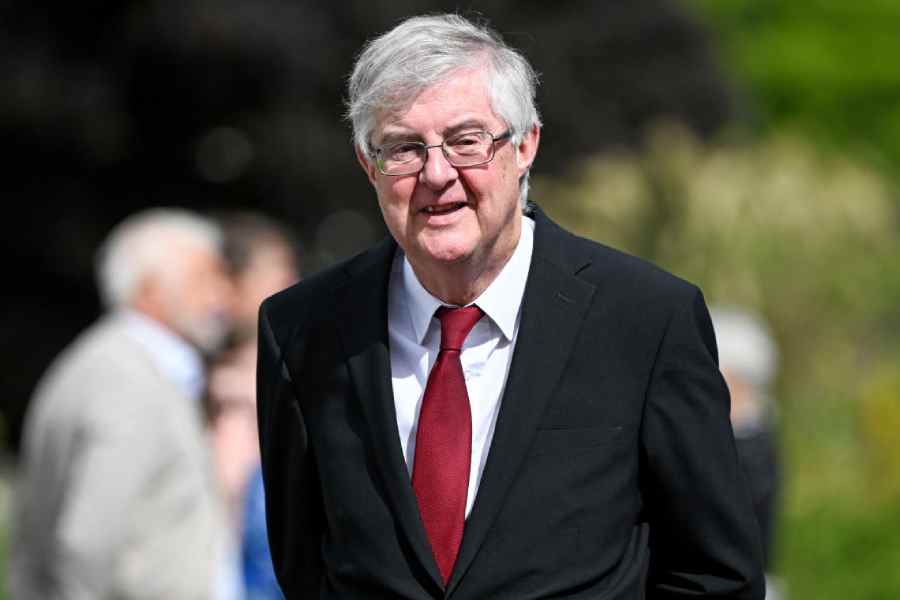Close links
The first minister of Wales, Mark Drakeford, came to the Indian High Commission in London recently to announce that 2024 would be a year of close collaboration between his country, which has some 30,000 Indians, and India. The ‘Wales in India’ programme would cover “connections across areas such as the life sciences, engineering, cybersecurity, education, and much more,” he said. “We’ve already had one of Wales’s poet laureates (Nia Morais) centre stage at the Kolkata Literature Festival...”
The first time I became aware of Wales was as a small boy at St. Xavier’s School, Patna, when we were shown How Green Was My Valley about life in a Welsh mining village. Decades later, I thought of this evocative film when, as a Daily Telegraph reporter, I covered the closure of the last coal mine in Wales and the disappearance of tightly-knit communities. Many Indian doctors made their living in Wales, partly because they couldn’t get jobs in the prosperous south. The movie producer, Krishnendu Majumdar, who became the first non-white chairman of Bafta, told me of his childhood growing up in a Welsh village where his late father, Rupendra Kumar Majumdar, had come from Calcutta and was the local general practitioner. With his mother, Jharna, who is now in her 80s and still lives in Wales, his father had established the first Puja committee, which continues to this day. The BBC made a TV series called The Indian Doctor about life in Wales, starring Sanjeev Bhaskar and Ayesha Dharker.
Drakeford went out of his way to pay tribute to the Indian community, “who every single day contribute to the richness of our society.”
Healthy idea
Watching a play titled Nye at the National Theatre last week, it seemed to me that the one thing India really needs is something like Britain’s National Health Service. The play has a fleeting reference to Jawaharlal Nehru, who formed a firm friendship with Aneurin ‘Nye’ Bevan, who established the NHS as Labour’s minister of health and housing in Clement Attlee’s cabinet on July 5, 1948.
Bevan was opposed by Winston Churchill and the Tories, and even some people in his own party as well as the British Medical Association. Before the NHS was created to provide free treatment, the poor died of preventable diseases. In 1953, Bevan visited India. When Nehru was in London in 1960 for the Commonwealth heads of government meeting along with his younger sister, Vijaya Lakshmi Pandit, who was then the Indian high commissioner in London, he made it a point to visit Bevan and his wife, Jennie Lee, a fellow Labour MP, in Buckinghamshire. Bevan died of cancer on July 6, 1960. Nehru must have wondered whether elements of the NHS could have been adapted in India.
History in print
The French academic, Christophe Jaffrelot, launched his new book, Gujarat Under Modi: Laboratory of Today’s India to receptive Indian students at the London School of Economics. Jaffrelot said that his book was ready for publication in 2013 but he was asked to cut so many passages “deemed hurtful towards the people of Gujarat and containing an unyielding view of Narendra Modi” that he decided not to publish at all. The 546-page book with 130 pages of footnotes, has two prefaces, written in 2013 and 2023, respectively. Jaffrelot’s thesis is that the way Modi allegedly undermined the rule of law in Gujarat has been adapted at the national level. He wrote the book because “history is being rewritten to such an extent that if it is not in print somewhere, nobody will have any ideas what happened 20 years ago”. I am not sure whether this was just a quip but there was a suggestion that this book will not be available in India until May.
Murder mystery
Over the years, I have written quite a bit about murders of Indians in Britain, often triggered by the reluctance of men to accept that Indian women want the same freedoms as their Western counterparts. Geeta Aulakh’s murder in Southall in West London is a typical example of this, but it has a twist. Geeta was a diligent employee of Sunrise Radio, which was run by a friend of mine, the late Avtar Litt. When the 28-year-old mother of two boys, aged 10 and 8, sought a divorce after 10 years of marriage, she was hacked to death on November 16, 2009 by a man hired by Harpreet Aulakh, 32, her insanely jealous husband.
Her husband was sentenced to 28 years in prison. Sher Singh, a youth of 19, who was brought from Punjab under the guise of being a student and struck the actual blows with a machete, was given 22 years. So were Jaswant Singh, 30, who was involved in the conspiracy, and a fourth man, Harpreet Singh. The three who did the contract killing applied successfully to complete their sentences in India. But the police claim they are now out, enjoying life and posting pictures on social media.











